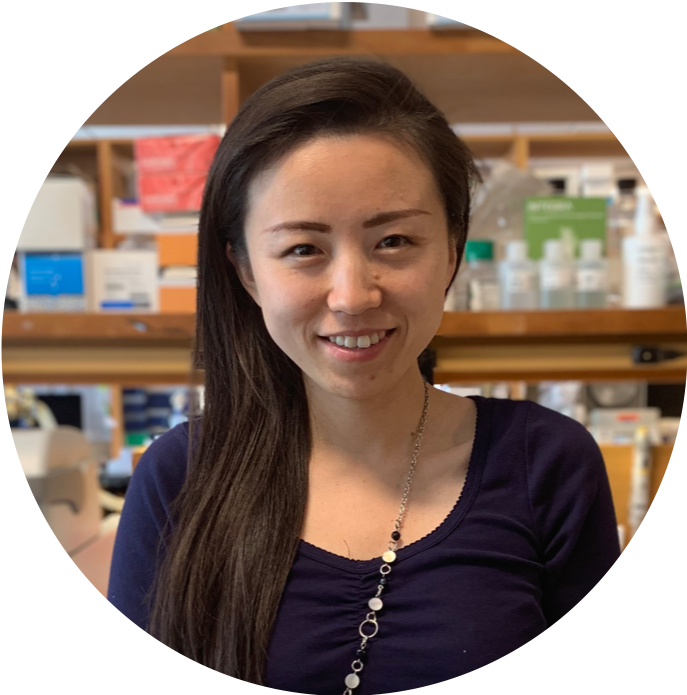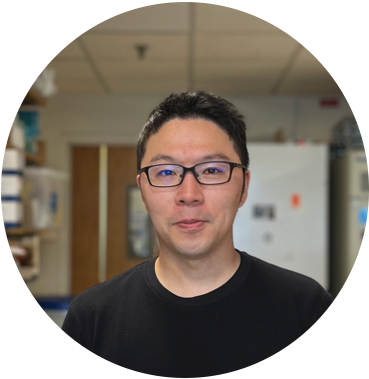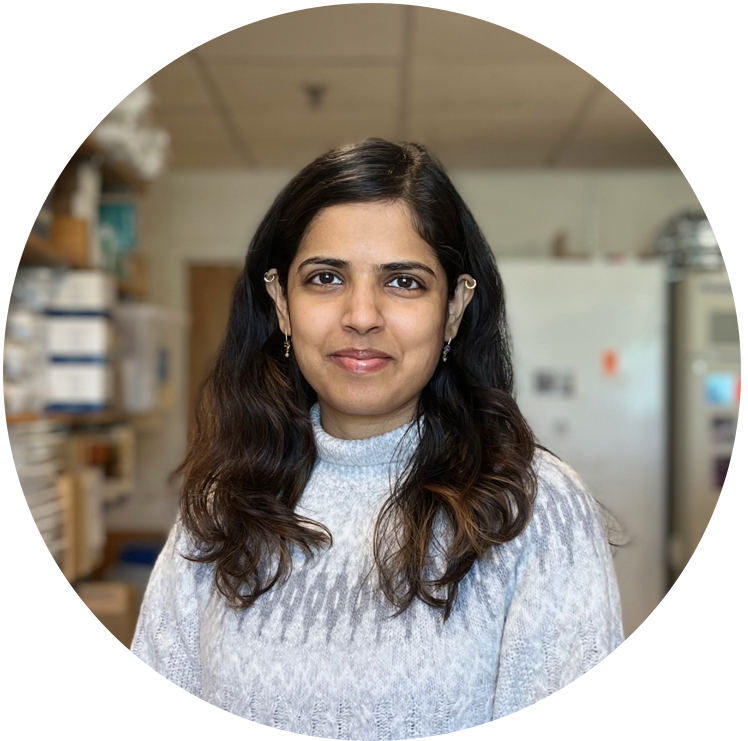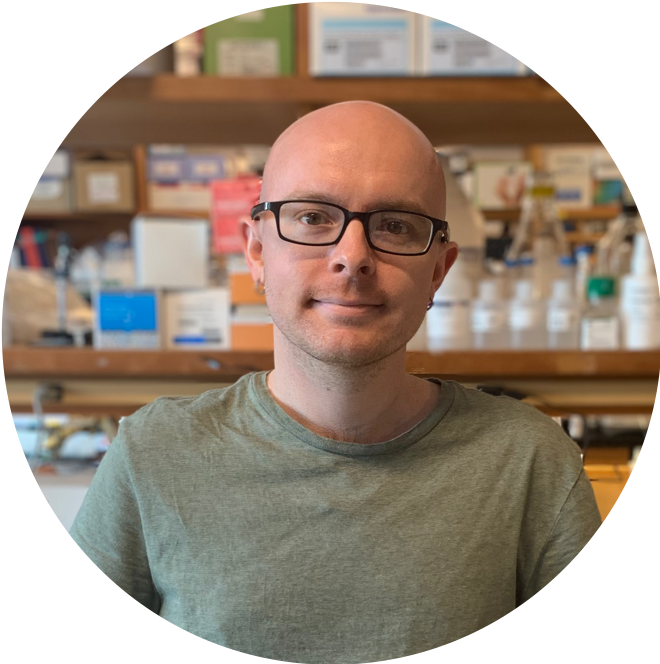Anurag joined MGH in March 2025 as a joint research fellow in the Hata and Lawrence labs. He earned his Integrated PhD from NCBS-TIFR, Bangalore, which focussed on the cis- and trans-effect of HPV integration in cervical cancers. In the Hata lab, Anurag intends to explore non-genetic mechanisms of therapy resistance in lung cancers. Outside the lab, he’s a self-proclaimed history enthusiast and a collector of quirky facts—ready to share a random tidbit whenever you ask!
In April 2024, Takashi became a member of the Hata lab. He received his MD from Tsukuba University, Japan, and has been working as a thoracic surgeon. He developed an interest in cancer biology related to thoracic malignancies while working. His research focused on the tumor microenvironment of NSCLC at the National Cancer Center, Japan, and Toho University in Japan, and he finished his PhD at Toho University under the supervision of Akira Iyoda. He is interested in novel effective therapies that can target oncogenic drivers in thoracic malignancies including malignant pleural mesothelioma, and he began researching.
In 2024, Divya joined Hata Lab after earning her Master’s in Biology from the Indian Institute of Science Education & Research, Trivandrum, India, and completing her Ph.D. in health sciences at Ben-Gurion University of the Negev, Israel, under Prof. Etta Livneh. In Prof. Livneh’s lab, she discovered a novel mechanism regulating PKC activity through an upstream ORF-encoded peptide, revealing its significance in cancer therapy. Her study showed a uORF with biological function exhibiting kinase inhibitory activity for the first time. Now at Hata Lab, Divya focuses on understanding the intricate dynamics between tumor cells and their microenvironment. Her research aims to develop better model systems illuminating this interplay and leverage the findings to overcome drug resistance to targeted therapy for EGFR, ALK & KRAS mutant lung cancers. Beyond the lab, Divya enjoys long walks, learning Japanese, and cherishing moments with family and friends. She’s also an enthusiastic dog-lover.
Toshio joined the Hata Lab in April 2022. He received his MD at Nagoya City University, Japan and practiced as a thoracic surgeon in Japan, where he developed a great interest in cancer biology. He then obtained his Ph.D. at Kindai University, Japan, where he studied the resistance mechanism to MET-TKIs in lung cancer harboring MET exon 14 skipping mutation in the laboratory of Dr. Tetsuya Mitsudomi. Toshio is currently focusing on drug persister cancer cell and acquired resistance to targeted therapies especially in ALK-positive lung cancer. Despite of the initial drastic efficacy of molecular targeted therapy, all patients inevitably develop resistance. Toshio believes that his project will contribute to establish new treatment strategies for lung cancer to prevent the drug resistance.
Radhika joined the Hata lab in 2022. She did her Masters in Virology from the National Institute of Virology, India. Radhika received PhD in Cell and Molecular biology from the University of Toledo, Ohio. During her graduate school in Dr. William R. Taylor lab her research focused on the spindle assembly checkpoint and mitotic spindle architecture. In the Hata lab she is working on understanding the role of tumor micro-environment in EGFR mutant lung cancers. Along with mutations in tumor cells, components from tumor micro-environment impact patient response to tyrosine kinase inhibitors. Her goal is to dissect such pathways used by tumor cells for communicating with the surround cells and provide strategies to overcome acquired resistance in lung cancer. In her free time Radhika enjoys hiking, badminton and reading

Chendi received her Bachelor of Science degree in Biological Science as an honors graduate from Shaanxi Normal University, China. She then completed a PhD in the Department of Biochemistry at Boston University School of Medicine (BUSM) where her research in the laboratory of Dr. Stephen Farmer focused on understanding the mechanisms of energy expenditure and stem cell fate in brown adipose tissue. Chendi joined the Hata laboratory as a research fellow in June 2017 in order to pursue a new direction in translational cancer research. One of Chendi’s research interests is to identify novel targeted therapeutic strategies for KRAS mutant NSCLC, a subset of lung cancers that have so remained refractory to targeted approaches. She is particularly interested in targeting vulnerability of subsets of KRAS mutant NSCLC bearing different co-occurring mutations. In addition, Chendi is interested in deciphering the evolution of lung cancer heterogeneity by utilizing computational and “omic” approaches. Outside work, Chendi is training as a Chinese martial artist, is a professional Erhu player and a certified scuba diver. Chendi also has a passion for different types of music, especially classic rock!
Jamie completed his Bachelor and Masters at the University of Sussex, before undertaking his PhD at the University College London. There he worked with Professors Benjamin Chain and Mahdad Noursadeghi, developing methods for high-throughput sequencing and analysis of T cell receptor (TCR) repertoires. He moved from London to MGH to work with Mark Cobbold, exploring immunopeptidomes and TCR repertoires in a range of cancers. Staying within the department, he moved to the Hata lab in September of 2019, where he is working on developing immunotherapies to treat ALK positive lung cancers.







